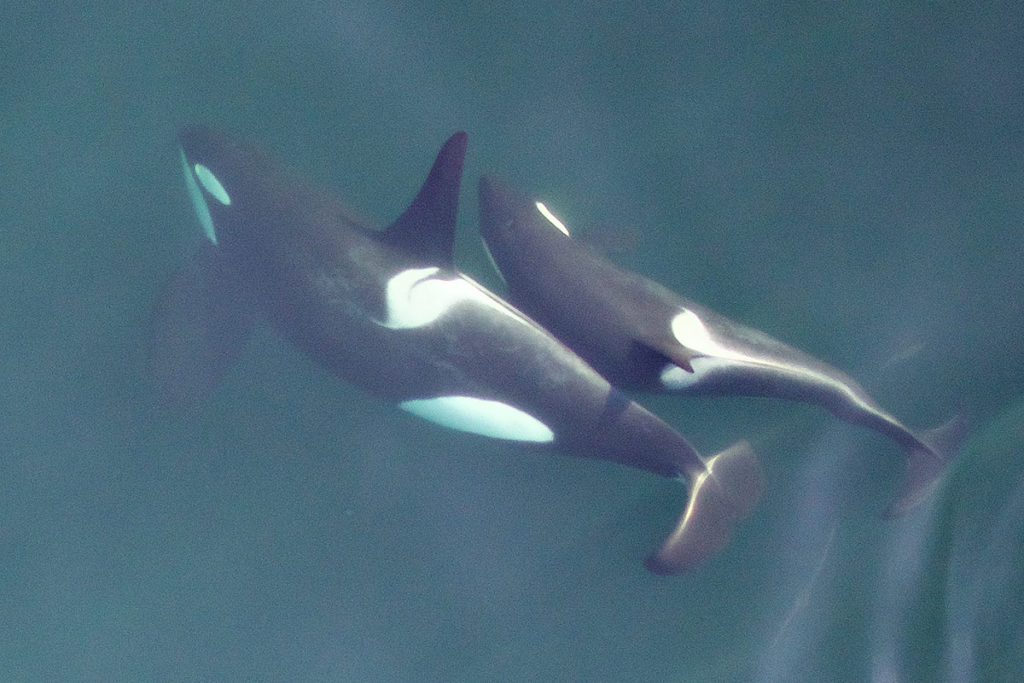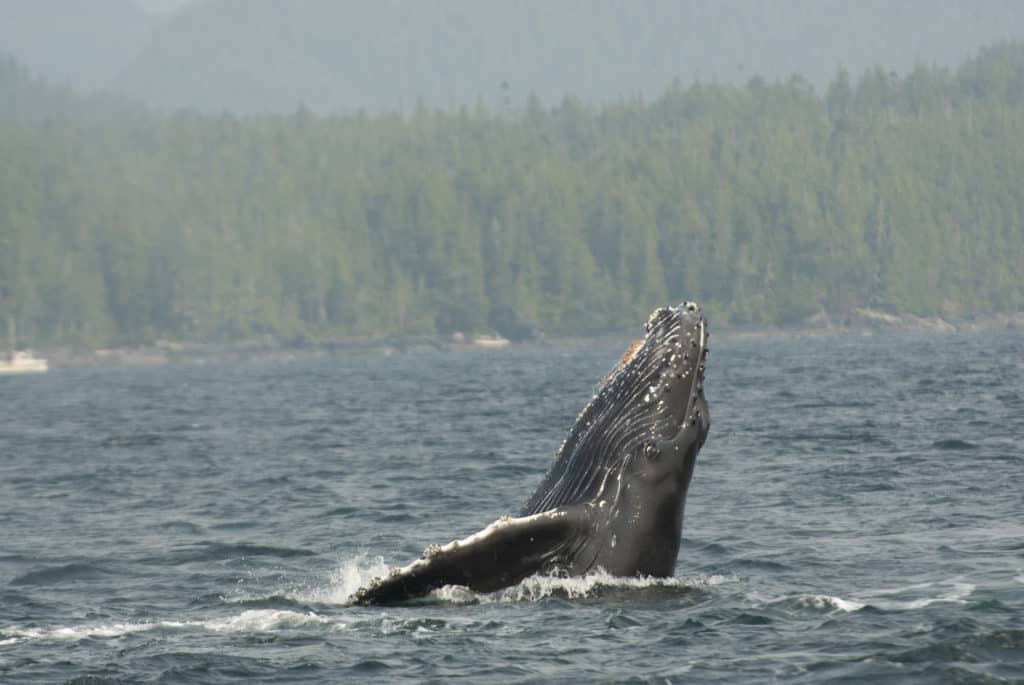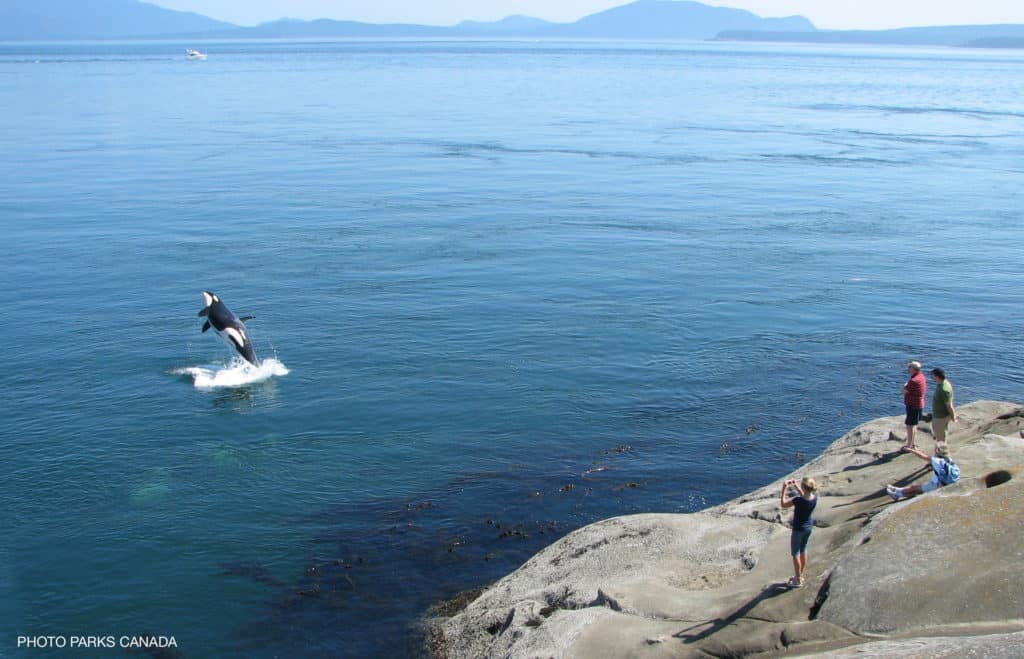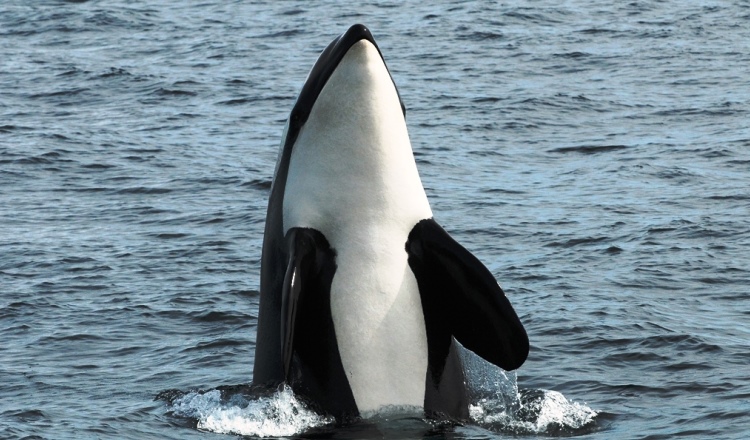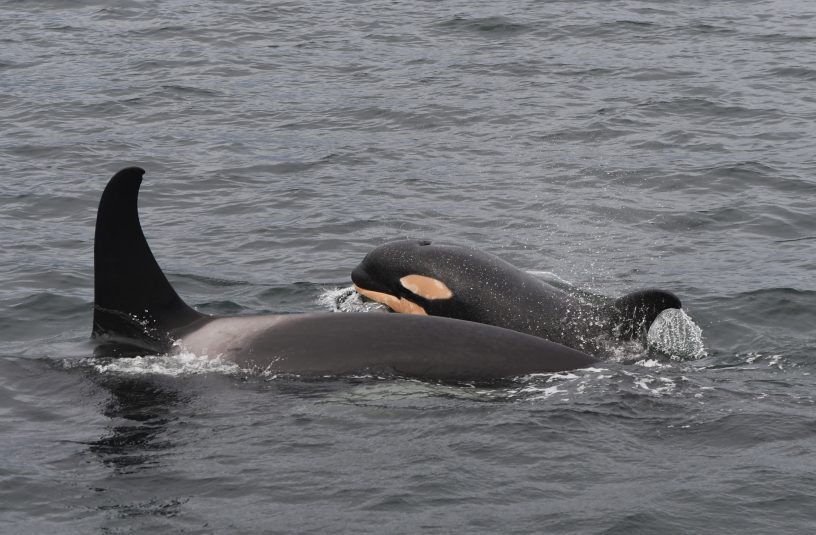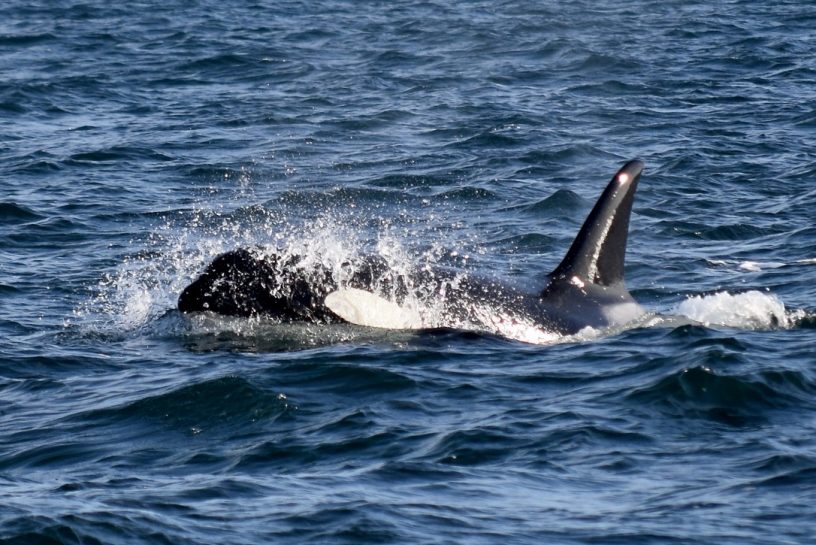Whale Report Alert System celebrates a milestone
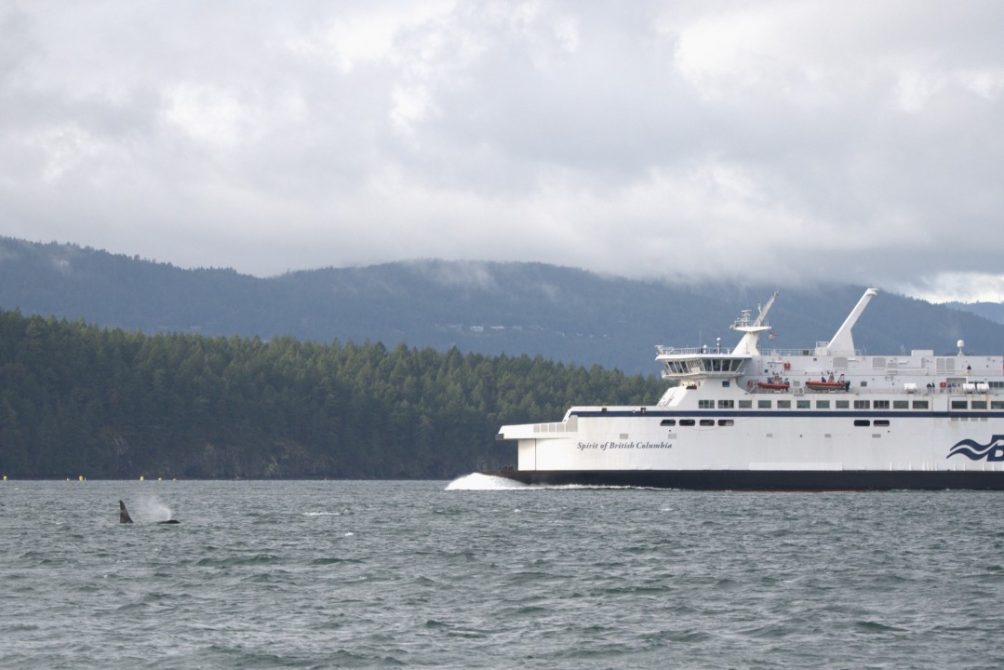
A roadmap to end ocean roadkill: Since 2018, The Ocean Wise Whale Report Alert System (WRAS) has been on a mission to combine citizen science and technology to help put an end to vessel strikes
Ship collisions remain a global threat to whales, killing or injuring as many as 20,000 cetaceans each year. In 2023 alone,, there were at least 10 whales struck in BC.
But there is hope. In a new article, The Whale Report Alert System: Mitigating threats to whales with citizen science, published in the peer-reviewed journal Biological Conservation Ocean Wise demonstrates how its Whale Report Alert System can be used as a model to reduce the risk of ship strikes on cetaceans around the globe.
The Whale Report Alert System was formed with the idea that real-time observations of cetaceans by citizen scientists could unlock an opportunity to develop ship strike mitigation tools.
Launched in 2018 as part of the Ocean Wise Sightings Network, the WRAS generates real-time alerts from whale sightings reported by coastal citizens, mariners, and researchers via the WhaleReport App (British Columbia) or to the Acartia Data Cooperative (Washington). When a report is made, shipmasters and pilots nearby are alerted to the presence of a cetacean in their vicinity. This gives them the chance to slow down or alter course, reducing the risk of collision and disturbance.
Five years since its launch, the WRAS now has 550 registered users and has sent over 31,000 alerts to vessels to notify them of nearby whale presence. This has mitigated ship strike risk for 120,000 whale-vessel encounters. It’s used by both US and Canadian government enforcement officials to monitor vessel activity in transboundary waters and covers 62,000 km2 of water in British Columbia and Washington.
The success of the WRAS is attributed to collaboration between mariners, the marine industry, citizen scientists, and both non-governmental and governmental bodies, as well as in-person outreach events in coastal communities, recruiting people of all ages to report sightings to the WhaleReport App.
The inclusion of the WRAS in a prestigious, peer reviewed scientific journal is an exciting milestone – but the program is just getting started and is in the midst of growing! 2024 will see the program implement updates and new technology, including real-time hydrophones and infrared cameras to increase the number of WRAS alerts sent in areas with poor observer coverage or poor visibility. Stay tuned!
Ocean Wise would like to extend a heartfelt thank you to the dedicated members of our Ocean Wise Sightings Network. The WRAS came to fruition because of your dedication to whale conservation. By reporting over 90% of your sightings in real time via the WhaleReport app, you’ve made a real-time alert system for large vessels possible.
Learn more about the Whale Report Alert System here.
Posted April 12, 2024 by Rosemary Newton
